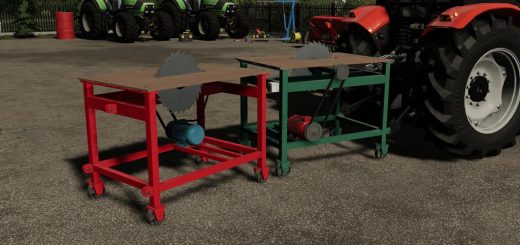Seasons 19 mod – All We Know So Far


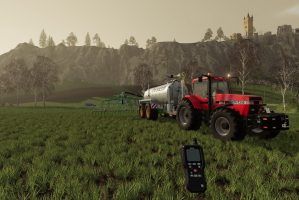
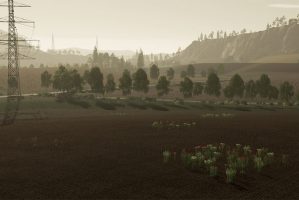

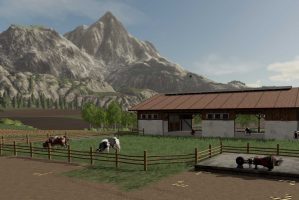
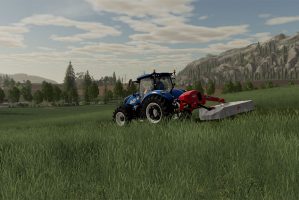
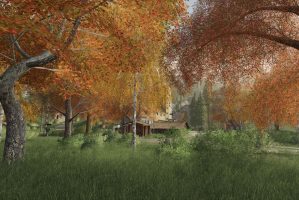
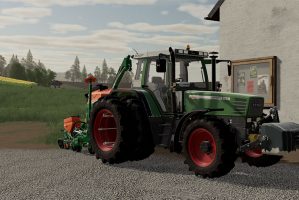
Seasons 19 mod – All We Know So Far
Seasons 19 Released. Download mod bellow.
Seasons 19: What’s new
The new version of Seasons, made for Farming Simulator 19, brings plenty of new and improved features.
Learn about the upgraded growth and weather, the updated visuals and audio, and the brand new animals system in this post.
The manual will be updated to explain all that is new in Seasons 19. This update will arrive before release.
We hope the changes and new features provide more interesting and less repetitive gameplay, matching more what real life farmers go through.

Growth
The growth system in Seasons 19 has received a revamp. No longer is every year the same and neither is success predetermined. Look out for bad weather destroying your crops, whether it be frost or droughts. Also plan a year ahead to keep your fields nutricious using crop rotation.
Improved weeds
Farming Simulator 19 added weeds, weeding and spraying. Seasons changes the default behavior of weeds by growing them slowly in patches instead of across entire fields.
Weeds grow in patches only when the temperature is right. They sprout all over the place as small weeds and mature when it gets warm. When it gets too cold they will start to die on their own. We have implemented preemptive spraying. If you spray early on you will not get weeds on the field until you harvest. Mechanical weeders can only remove young weeds and have no preemptive function.
Weather-influenced growth
Three new growth states have been added: planted, germinated and germination Failed
Germination happens every day, as long as the soil temperature is high enough. Normal growth still only occurs during a period change. When crops are planted they will initially be in the Planted state and then will move to Germinated,as long as the soil temperature is high enough. Germination can also fail on parts of your field when the conditions turn too cold, or too dry.
In Seasons 17 entire fields of crops would die, if they were planted at the wrong time of the year. In Seasons 19 the growth and germination system have been redesigned to be more natural and life like. Dry spells and frost can damage parts of your fields, so it’s important to try and plant at the right time and when conditions look favourable in the weather forecast.
It is possible for crops planted too late to germinate, but they will never mature. Check the Seasons calendar and make sure to plant crops at the correct times.
Crops have 3 maturity states: planted, young and mature. All crops have 3 resistance ratings, depending on their maturity state. A new help page has been added into the Seasons menu to show the resistance ratings for each maturity state, per plant.
Crop Rotation
Crop rotation is the practice of growing different crops in succession that are beneficial to each other. This is now possible in Seasons 19 and with successful planning and execution there will be increased yields and reduced need to fertilization. A yield effect of 120% of vanilla is possible by using the most beneficial rotations and crops.
Crops are divided into crop categories and have dependencies that determines whether a preceding crop category is favourable, neutral or unfavourable for yield. Some crops are more suitable to grow several years in succession while others require more variation.
It is also possible to leave a field to rest and restore for a year (in the mod this is termed keeping it fallow). Most common crop rotations should be possible to simulate, including the effects of double cropping.
In the field HUD you will be able to see the crop categories of the two previously planted crops. Together with a rotation planner this will be an important tool for planning the next crop to plant.
Rotation planner
The crop rotation planner is a new tool specially made for players to plan their rotations ahead. It can hold four rotations (one per column) and they are saved, even in multiplayer.

Weather
The new sky and the removal of the skybox system asked for a complete rewrite of the weather system with more details, variety and immersion.
The new cloud system has been integrated with new weather generation that allows more events every day. Rain in the morning, cloudy in the afternoon and thunder at night: it is now all possible.
Wind speed and direction is now modelled. The wind speed is a key attribute to how quickly grass dries. The income from wind turbines are also dependent on wind speed and with very strong winds they will shut down. Visually turbines will also follow the wind direction.
Detailed forecast and uncertainty
The weather forecast is now much more detailed. Not only does it feature minimum temperature, average temperature and maximum temperature, but also wind speed and probability of precipitation. Expected precipitation is also shown. As drying of hay requires good weather, the suitability of the weather for drying grass is indicated in the forecast (more information on this feature in the below section on grass). On top of that, the next 24 hours are detailed in 3-hour blocks for even more frequent information.
However, the forecast is not completely certain: the further away the prediction the more uncertain it is. A predicted rain in 5 days time might not actually happen.
The weather-people don’t know everything, so it is useful to check the forecast regularly!
Snow and the mask
Some small changes to the Seasons mask: we now fall back on the tip collision. This has become possible with new engine changes. This makes it possible to have high snow even on unprepared maps. However, it very likely looks bad, though, until the map has been fully prepared.
Bale rotting still requires a fully prepared map with a special Seasons mask, so that every spot that is expected to cover for rotting also performs that function.
Placeables from the basegame have received their own masking area so they fit better. Map makers likely need to do this as well to further improve their maps for snow.

Animals
The animals system has received a complete overhaul with new complexities and more depth. The age, weight and gender of each animal you own is simulated.
Food intake of each animal depends on their age and their weight. Weight gain also depends on their age and weight and on what they are fed. To maximize weight gain the best feed has to be provided.
Cattle can produce either manure, or slurry (liquid manure), but not both. What they produce depends on whether they have straw. This aligns better with how real farms are run. Not using straw will cause a slight decrease in productivity, but slurry is much easier to handle and worth more to a farmer than manure.
Care for the health of the animals has become of utter importance. Keeping them overnight in a trailer will kill the animals due to lack of food, water, and movement.
Hens lay eggs. To get chicks, get a rooster. Ideal is 1 rooster per 8 hens. The chance of breeding decreases with less roosters. If brooding, no eggs.
Raising animals for meat production is now possible. As animals gain weight and age, their growth rate decreases, while feed intake generally follows weight. The key to maximizing profits is to find the balance point between optimal weight and age of the animals. Price per kg is higher for younger animals and weight gain will slow down as an animal ages.
Breeds
Seasons 19 includes real life animal breeds and each breed has its purpose. Some breeds are meant for meat production, while others are specific breeds for milk, wool and egg production.
For instance cattle is now divided into five breeds: Limousin, Saler, Holstein, Ayrshire and Brahman. These all are different. Limousin, Saler and Brahman are meat breeds, so steers are bought at 300 kg weight for fattening. They have different price and weight gains. Holstein and Ayrshire are meant for dairy operations, so 2 year old heifers are available for purchase. Their milk output will follow lactation cycles. The mod assumes that artificial insemination is carried out and that a 14 month gestation cycle is followed (9 month gestation and 5 months between gestations).
The other animals have similar characteristics to create a more varied, realistic and interesting animal gameplay.
Horses
The horses have received a special treatment. We have redesigned them into a different type of gameplay: a livery stable. The gameplay tries to emulate a farm that provides housing and basic care of a horse for its owner.
A horse can be brought to the farm in exchange of no money. It has to be fed, cleaned and ridden every day. Depending on how much care it gets, an income is provided every day. Some breeds require more riding to earn the same amount of money as other breeds. Horses also provide more money when they are very fit.
This all comes at a high risk: an unhealthy animal can die. This will cost quite a bit of money as repayment to the owner.
Grazing
The grazing mod from Farming Simulator 17 has been integrated directly into Seasons 19. Animals in pens that have grass will consume the grass as replacement for the grass in the trough. Be careful, as the grass in a pen can be completely eaten already. This depends on the size of the pen, on the amount of animals, and the time of year.
The changes of the animal pens into placeables that plant their own grass, together with more engine changes, allow for automatic detection of the grass. No map changes are required. The only requirement is that the animal pen has grass.
Water pump
The animals require a lot of attention. Daily feeding, daily watering, maybe even daily riding. The water requirements of the animals have been corrected to be more to realistic standards. To make it easier for players to have water in the troughs, a new water pump can be placed near the animal pen: it will automatically keep the water level of the water troughs at a minimum of 15%. The water cost is subtracted from your account.

Better grass handling
The many engine and script changes in Farming Simulator 19 allowed for many new features. Two of those are a multi-step grass drying process, and improved rotting.
A new multi-step drying process has been added to create hay. When cutting wet grass, it needs to be tedded. Afterwards it needs to dry in the sun to become hay. When cutting dry (low moisture) grass, it does not need tedding but still needs to dry. This means that making hay now depends on the weather. Good planning is required. The more detailed forecast will certainly help here.
If hay is left in the rain it will turn wet again, and afterwards it will start to rot. Freshly mown wet grass will not rot before the second night after mowing.
Hay and straw rots when kept outside in the rain. However, straw and hay heaps inside buildings will not rot anymore, like was the case in Seasons 17. Grass still always rots, as this material is wet. With the new drying system described above, it will take two days instead of one for the rotting to start on grass heaps.

Improved visuals and audio
Seasons 19 has received a new system for tree visuals: custom shaders. Together with GIANTS, the team has created new shaders and special custom textures. The trees now gradually change their looks, instead of the sudden color switch in Farming Simulator 17. The leaves grow in spring until fully grown in summer, after which they will brown for autumn. The color of the tree depends on the time of year, the tree and on the weather.
The lighting of Seasons has been rewritten to fully fit the new lighting system of Farming Simulator 19. It removes the moon in favor of darker nights and improves the dawn and dusk lighting. The amount of daylight depends on the time of the year and the location of the GEO.
The new weather system fully integrates with the new cloud system. A varying amount of clouds are shown throughout the day and move with the wind direction. With these changes the weather during the night is finally working well.
On top of the cloud system, Seasons adds a new weather event: storms. Storms produce thunder and an occasional lightning effect that will light up your fields.
Immersive ambient sound system
Seasons replaces the wind and rain sounds of the basegame with a new system. This new system ties in tightly with the visuals: it is possible to hear how fast the wind is blowing or how heavy it rains or hails.
A large set of sounds is being mixed in real time to create the desired effects both inside a vehicle and outside a vehicle.
A new set of flags is added to the map sound system to allow for quiet birds in the winter.

Adjusted vehicle maintenance and repair
We have replaced the Seasons 17 repair system for the basegame 19 repair, but added new algorithms for sell and repair prices. Also, we have separated the scratches (visible wear) from the vehicle repair. To improve the performance of your vehicle you can repair. To make the vehicle nice and shiny again you will need to repaint the vehicle. This is costly, depending on the size and complexity of the machine.
When are we releasing Season 19?
July 24th, 2019 for PC and Mac.
How about Season for console?
We need to make sure the mod is complete and bug free. After that we will go through a final QA process with GIANTS and then we can put it on console.
Help us out by reporting any bugs to us!
FS19 Seasons Measurement Tool

The measurement tool is back in Seasons 19. (Well, it has been confirmed already)
The tool allows you to gather useful information to support your farming experience. With the tool you’re able to measure your bales, trees, pallets and soils.
Seasons 19 mod for Farming Simulator 19
Credits:Season 19 mod

